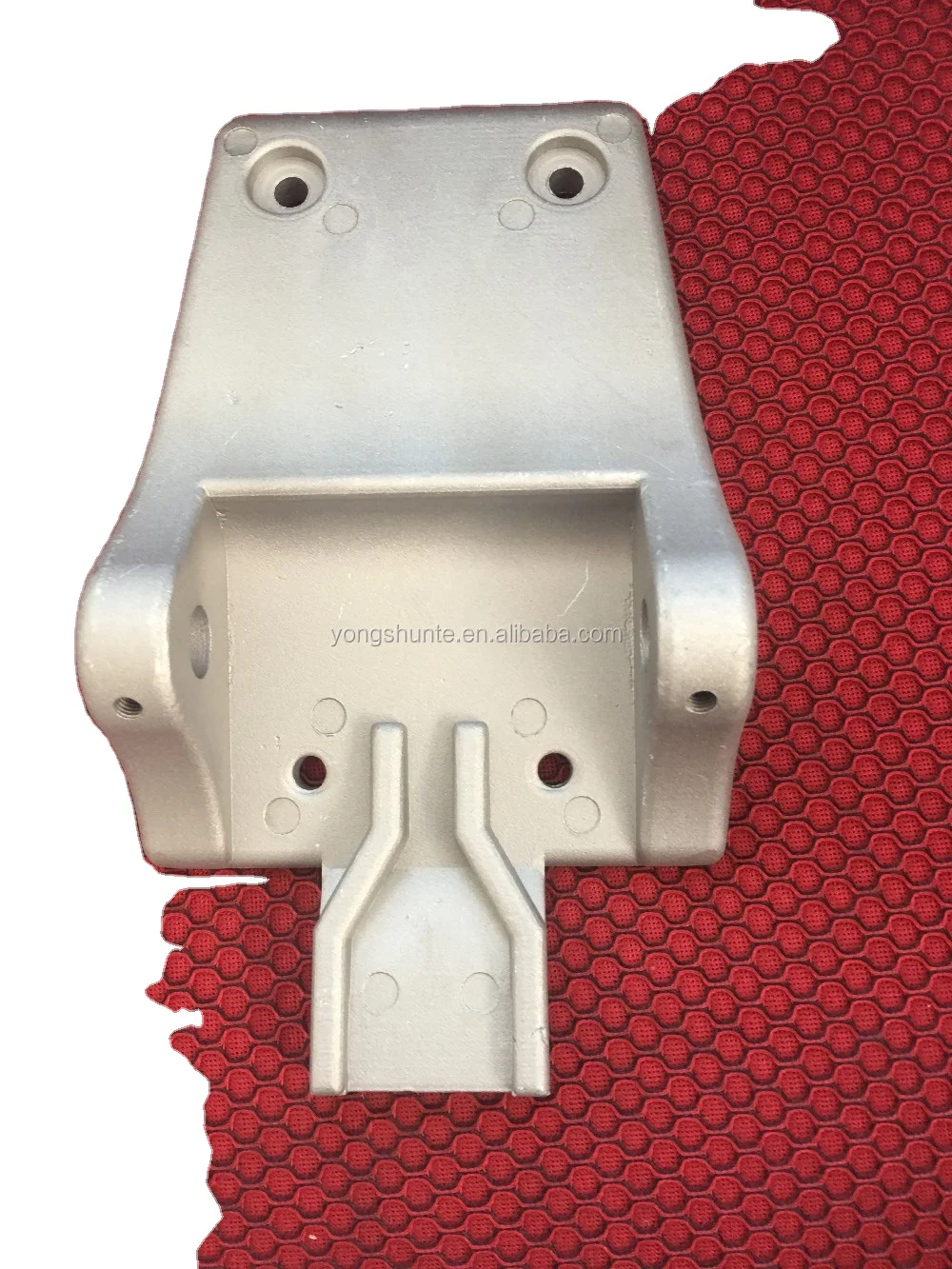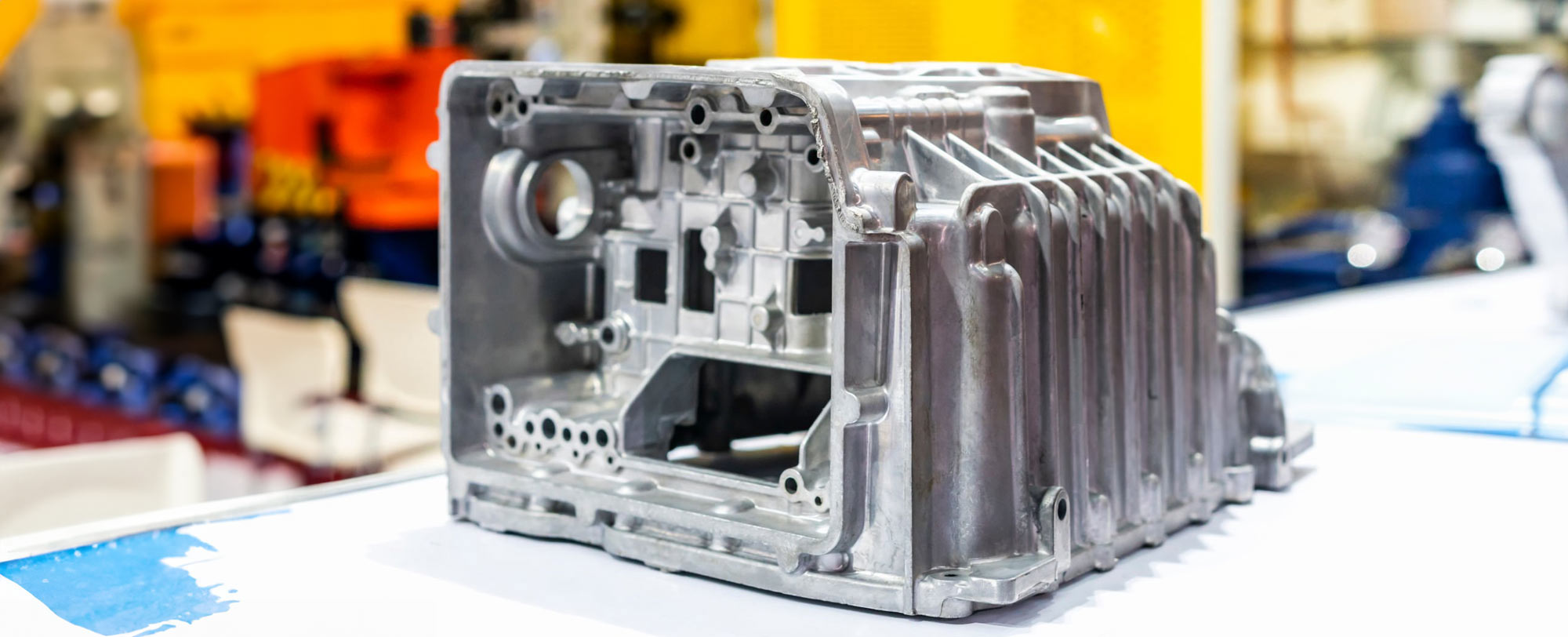Aluminum Foundry expertise that guarantees superior product quality
Wiki Article
The Future of Light Weight Aluminum Foundries: Patterns and Technologies Forming the Market
The aluminum shop industry is undergoing considerable makeover. Key fads highlight the significance of sustainability and effectiveness. Innovations in clever production and automation are becoming common. Shops are increasingly concentrated on utilizing recycled materials. This change increases concerns concerning future techniques and modern technologies. Just how will these adjustments effect production techniques and market dynamics? The responses might redefine the industry landscape in unanticipated means.Innovations in Smart Manufacturing Technologies
As the aluminum factory industry advances, improvements in clever manufacturing modern technologies are ending up being increasingly vital for enhancing efficiency and effectiveness. The combination of automation, expert system, and the Web of Things (IoT) is changing conventional foundry procedures. These technologies allow real-time tracking of procedures, permitting immediate changes that maximize outcome and reduce waste.Additionally, artificial intelligence algorithms evaluate manufacturing information to identify patterns and anticipate maintenance needs, decreasing downtime. Robotics are significantly used for repeated jobs, releasing knowledgeable workers to concentrate on even more complex obstacles. Furthermore, digital doubles-- digital models of physical processes-- assist in simulations that can boost layout and operational strategies.
The adoption of these clever manufacturing technologies is driving affordable advantages in the aluminum shop market. By streamlining workflows and boosting decision-making capabilities, foundries can meet expanding market demands while maintaining premium standards. The future of aluminum foundries is indisputably linked to these technical advancements.
Welcoming Eco-Friendly Products and Processes
The aluminum shop industry is increasingly focusing on environmentally friendly products and processes to enhance sustainability. This change includes the fostering of lasting product sourcing, energy-efficient production methods, and effective recycling and waste monitoring techniques. By incorporating these practices, foundries aim to lower their environmental influence while keeping competitiveness out there.Lasting Material Sourcing
Exactly how can aluminum shops enhance their sustainability efforts? Sustainable material sourcing has actually emerged as a vital approach in attaining this goal. By prioritizing recycled aluminum, factories can greatly minimize their environmental footprint, as recycled products call for less power and less sources compared to primary aluminum manufacturing. Additionally, sourcing products from certified vendors who abide by environment-friendly techniques advertises accountable mining and lessens eco-friendly effect. Factories are likewise discovering alternative materials, such as biopolymers and eco-friendly coatings, to match traditional light weight aluminum procedures. Working together with stakeholders, consisting of vendors and environmental organizations, cultivates advancement in sourcing techniques. Ultimately, welcoming sustainable material sourcing not just straightens with international sustainability objectives however also positions aluminum foundries as leaders in environmentally accountable manufacturing.Energy-Efficient Production Strategies
Aluminum foundries are significantly embracing energy-efficient production techniques to complement their sustainable product sourcing campaigns. These approaches concentrate on minimizing power intake throughout the production procedure. Advanced modern technologies, such as induction melting and maximized casting procedures, are being executed to lower the overall carbon impact. In addition, automation and clever manufacturing systems boost functional performance, permitting better energy monitoring. Factories are likewise exploring the integration of renewable resource sources, such as solar and wind, to power their procedures. By focusing on energy effectiveness, aluminum foundries not just lower production costs yet likewise align themselves with international sustainability goals, ensuring an extra eco liable method to light weight aluminum production while meeting the rising need for eco-friendly techniques in the industry.Reusing and Waste Management
Embracing eco-friendly products and procedures, aluminum factories are focusing on recycling and waste monitoring approaches to improve sustainability in their procedures. By integrating closed-loop systems, these facilities are lessening waste and maximizing resource performance. Scrap aluminum, a conveniently offered product, is being recycled on-site, significantly decreasing the need for virgin materials and reducing power usage. Advancements in arranging and refining technologies additionally promote the recycling of light weight aluminum, guaranteeing that also contaminated products can be repurposed successfully. In addition, shops are taking on lasting practices such as lowering contaminated materials and advertising using eco-friendly products for packaging. This commitment to reusing not only decreases ecological influence yet additionally improves the financial stability of light weight aluminum foundries in an affordable market.The Role of Automation and Robotics
Automation and robotics are significantly changing the light weight aluminum shop industry, significantly improving manufacturing effectiveness. By integrating innovative modern technologies, factories can minimize labor expenses while all at once improving safety requirements for their workforce. This change not just enhances procedures but likewise positions the industry for sustainable development in a competitive market.Enhanced Production Performance
Revolutionizing manufacturing processes, the combination of sophisticated robotics and automation innovations has come to be a keystone for aluminum shops looking for boosted efficiency. These innovations streamline workflows, reduce cycle times, and enhance product high quality by reducing human error. Automated systems can keep track of manufacturing lines in real-time, enabling immediate modifications that maximize result. On top of that, robotics facilitate the handling of hazardous materials, guaranteeing more secure workplace while raising throughput. Anticipating maintenance technologies additionally contribute to performance by anticipating devices failings, consequently minimizing downtime. Because of this, aluminum foundries can achieve better consistency in their products while reacting a lot more quickly to market demands. This embrace of automation is setting a new criterion for efficiency and functional quality within the industry.
Lowering Labor Costs
The change towards advanced robotics and automation in light weight aluminum foundries not just improves production effectiveness however also plays a considerable role in minimizing labor prices. By incorporating automated systems, foundries can decrease the reliance on hand-operated labor, which frequently includes high salaries and training expenses. Robotics simplify recurring tasks such as putting, molding, and ending up, enabling a greater result with fewer workers. This technological adjustment not just decreases labor-related prices but likewise improves consistency and top quality in production. Automation can operate around the clock, taking full advantage of functional hours without the connected costs of overtime or change differentials. Therefore, aluminum factories can attain considerable cost savings while preserving competitive prices in a developing market landscape.Improving Safety Standards
While traditional aluminum factory procedures typically expose workers to hazardous atmospheres, the combination of robotics and automation considerably enhances safety and security requirements within the industry. Automated systems can do risky tasks, such as liquified steel handling and heavy lifting, minimizing human exposure to harmful conditions. In addition, robotics can run in hazardous ambiences and extreme temperature levels, efficiently lessening the threat of injury. Advanced keeping track of technologies and man-made intelligence assurance real-time safety assessments, permitting immediate actions to potential risks. Automation enhances process, minimizing the possibility of accidents triggered by human error. Consequently, the adoption of these modern technologies not just enhances safety and security but likewise fosters a more productive and efficient functioning atmosphere in light weight aluminum factories.Enhancing Energy Effectiveness in Manufacturing
As aluminum foundries seek to preserve competitiveness in a developing market, improving energy effectiveness in production has become a vital emphasis. By embracing sophisticated modern technologies such as high-efficiency melting heaters and automated temperature controls, shops can especially minimize power consumption. Executing real-time surveillance systems allows for specific tracking of energy usage throughout the production procedure, enabling fast changes to maximize effectiveness.Furthermore, moving to alternate power sources, including sustainable choices, can additionally reduce the carbon footprint. The integration of power recovery systems, which reclaim waste heat for reuse, is he has a good point coming to be progressively usual. Educating personnel in power administration practices ensures that everyone associated with the production process bears in mind power usage.
These campaigns not only lower functional prices but also align with global sustainability goals, placing aluminum factories as responsible gamers in the industry while boosting their total competition. - aluminum casting
Developments in Recycling Light Weight Aluminum
Developments in recycling aluminum have acquired momentum along with efforts to improve power performance in manufacturing. The light weight aluminum sector has welcomed innovative technologies that enhance the reusing procedure, decreasing energy usage and ecological impact. Methods such as hydrometallurgy and brand-new sorting innovations enhance the removal of light weight aluminum from scrap, boosting return prices and making sure higher high quality recycled material.
The growth of closed-loop recycling systems enables factories to recycle aluminum without substantial deterioration in quality, making the process extra lasting. Advancements in logistics and collection, consisting of improved radar and automated sorting, have actually also played an essential duty in increasing the effectiveness of light weight aluminum healing. These advancements not just add to a round economy however likewise assist reduce the carbon impact associated with aluminum production. As the demand for lasting methods grows, these developments place the light weight aluminum shop industry as a leader in responsible resource monitoring.
Replying To Market Needs and Customer Trends
Adaptability has ended up being a foundation for aluminum factories reacting to advancing market demands and consumer fads. As sectors progressively prioritize sustainability, light weight aluminum factories are shifting in the direction of green techniques, including boosted reusing processes and decreased carbon impacts. This shift straightens with customer choices for ecologically responsible products, driving shops to introduce their offerings.Additionally, the rise of lightweight products in automotive and aerospace markets demands developments in light weight aluminum alloys and casting techniques. Factories are buying research study and growth to generate high-strength, light-weight parts that fulfill stringent efficiency requirements.
Customization has acquired traction, with customers looking for customized remedies. Aluminum factories are leveraging advanced production innovations, such as 3D printing, to accommodate particular customer requirements efficiently. This responsiveness not only satisfies consumer demands yet also positions aluminum shops competitively in a dynamic market landscape, guaranteeing their relevance in an ever-changing industrial atmosphere.

Often Asked Concerns
How Do Aluminum Foundries Effect Local Economies?
Aluminum foundries considerably impact regional economic climates by producing tasks, boosting demand for regional vendors, discover this and adding to community growth. Their procedures frequently bring about boosted tax incomes, which can fund necessary civil services and infrastructure enhancements.What Are the Security Regulations for Light Weight Aluminum Shop Workers?
Security policies for aluminum factory workers consist of mandatory personal protective devices, appropriate ventilation systems, normal training on harmful materials, and adherence to guidelines established by job-related health and wellness and safety and security administrations to decrease risks and assurance worker security. - Precision aluminum castingHow Does Light Weight Aluminum Recycling Affect Global Supply Chains?
Aluminum reusing substantially minimizes demand for raw materials, improves source performance, and maintains rates. This shift effects worldwide supply chains by fostering a circular economic look at these guys climate, promoting sustainability, and making sure an extra resilient industry in varying markets.What Career Opportunities Exist in the Light Weight Aluminum Foundry Sector?
Numerous job opportunities exist in the light weight aluminum factory industry, including functions in engineering, quality assurance, production administration, and r & d. Experienced labor settings such as mold makers and machine operators are also popular.Just How Do International Profession Plans Influence Light Weight Aluminum Foundries?
International profession plans substantially affect light weight aluminum shops by influencing import tolls, supply chain dynamics, and market access. These factors can influence operational prices, competition, and overall success within the global aluminum manufacturing landscape.By prioritizing recycled light weight aluminum, shops can greatly reduce their ecological footprint, as recycled products need less energy and fewer resources compared to main light weight aluminum manufacturing. Aluminum factories are increasingly adopting energy-efficient manufacturing methods to complement their lasting product sourcing efforts. Automation and robotics are significantly transforming the light weight aluminum factory market, substantially improving production effectiveness. The change in the direction of progressed robotics and automation in light weight aluminum foundries not only improves manufacturing effectiveness yet likewise plays a considerable function in reducing labor costs. As light weight aluminum factories look for to keep competition in a developing market, improving energy efficiency in production has actually arised as a critical focus.
Report this wiki page